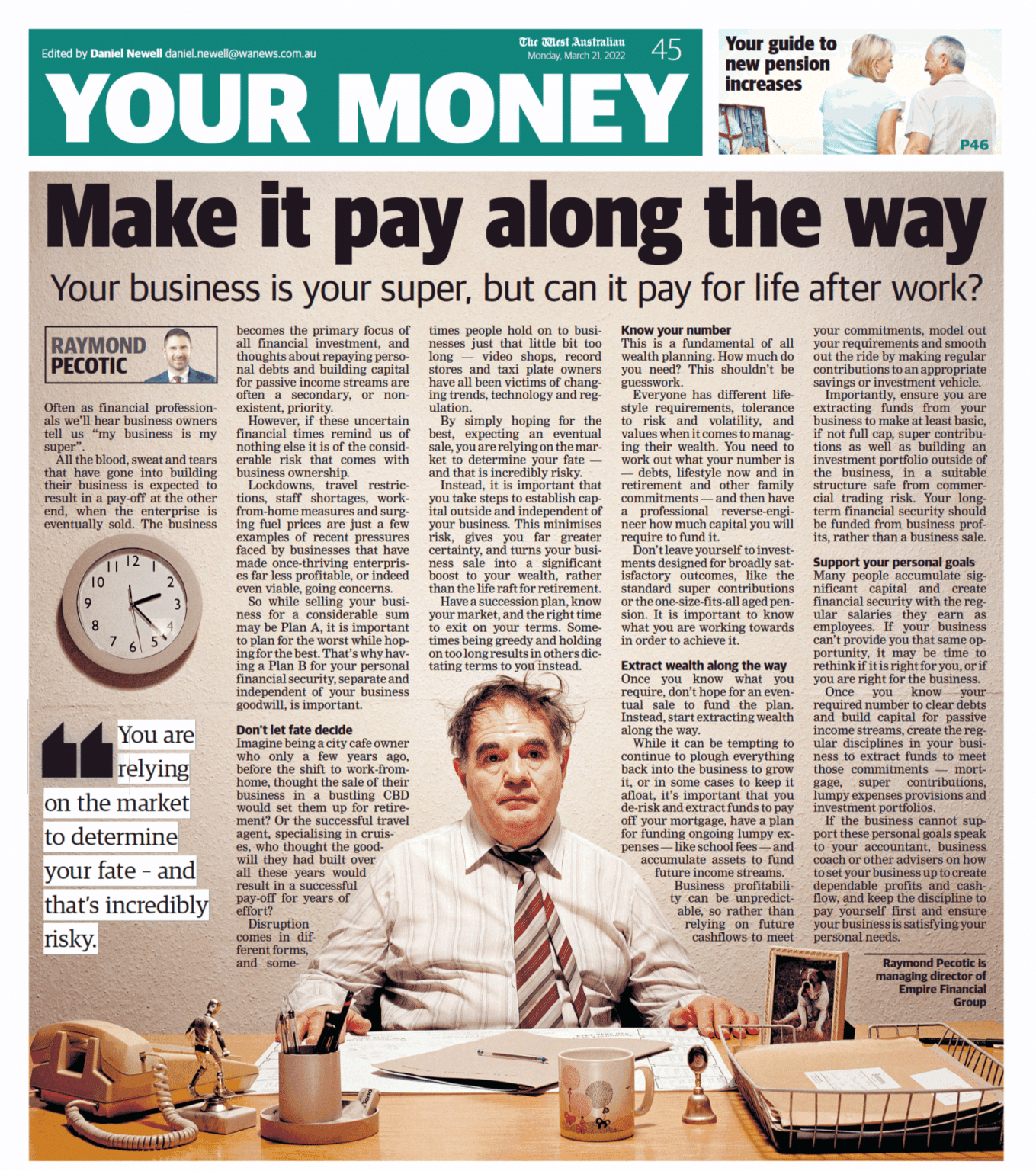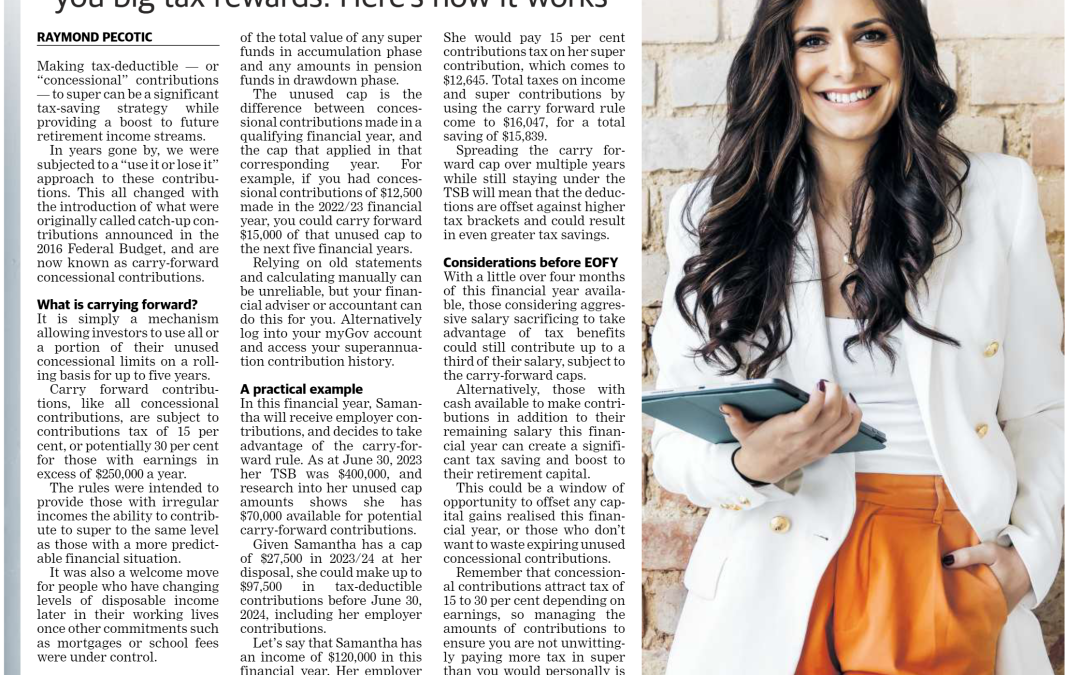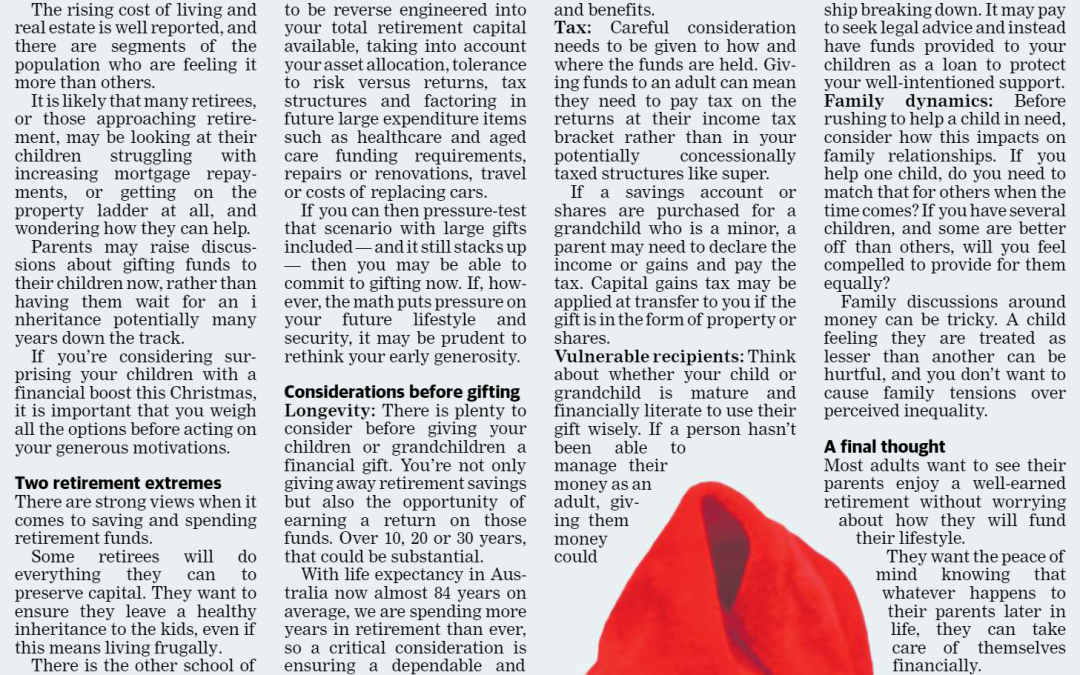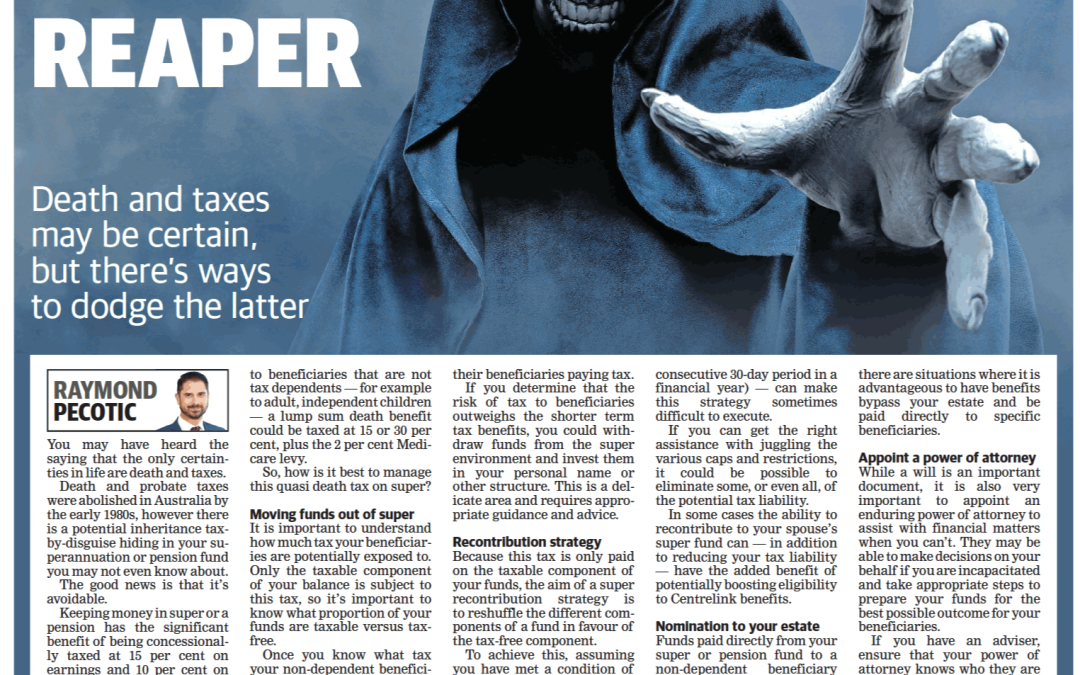By Raymond Pecotic, Managing Director, Empire Financial Group.
This article first appeared in The West Australian, Your Money, 21 March 2022
Your business is your super, but can it pay for life after work?
Often as financial professionals we’ll hear business owners tell us “my business is my super”.
All the blood, sweat and tears that have gone into building their business is expected to result in a pay-off at the other end, when the enterprise is eventually sold. The business becomes the primary focus of all financial investment, and thoughts about repaying personal debts and building capital for passive income streams are often a secondary, or non existent, priority.
However, if these uncertain financial times remind us of nothing else it is of the considerable risk that comes with business ownership.
Lockdowns, travel restrictions, staff shortages, work from-home measures and surging fuel prices are just a few examples of recent pressures faced by businesses that have made once-thriving enterprises far less profitable, or indeed even viable, going concerns.
So while selling your business for a considerable sum may be Plan A, it is important to plan for the worst while hoping for the best. That’s why having a Plan B for your personal financial security, separate and independent of your business goodwill, is important.
Don’t let fate decide
Imagine being a city cafe owner who only a few years ago, before the shift to work-from home, thought the sale of their business in a bustling CBD would set them up for retirement? Or the successful travel agent, specialising in cruises, who thought the goodwill they had built over all these years would result in a successful pay-off for years of effort?
Disruption comes in different forms, and sometimes people hold on to businesses just that little bit too long — video shops, record stores and taxi plate owners have all been victims of changing trends, technology and regulation.
By simply hoping for the best, expecting an eventual sale, you are relying on the market to determine your fate — and that is incredibly risky.
Instead, it is important that you take steps to establish capital outside and independent of your business. This minimises risk, gives you far greater certainty, and turns your business sale into a significant boost to your wealth, rather than the life raft for retirement.
Have a succession plan, know your market, and the right time to exit on your terms. Sometimes being greedy and holding on too long results in others dictating terms to you instead.
Know your number
This is a fundamental of all wealth planning. How much do you need? This shouldn’t be guesswork.
Everyone has different lifestyle requirements, tolerance to risk and volatility, and values when it comes to managing their wealth. You need to work out what your number is debts, lifestyle now and in retirement and other family commitments — and then have a professional reverse-engineer how much capital you will require to fund it.
Don’t leave yourself to investments designed for broadly satisfactory outcomes, like the standard super contributions or the one-size-fits-all aged pension. It is important to know what you are working towards in order to achieve it.
Extract wealth along the way
Once you know what you require, don’t hope for an eventual sale to fund the plan. Instead, start extracting wealth along the way.
While it can be tempting to continue to plough everything back into the business to grow it, or in some cases to keep it afloat, it’s important that you de-risk and extract funds to pay off your mortgage, have a plan for funding ongoing lumpy expenses — like school fees — and accumulate assets to fund future income streams.
Business profitability can be unpredictable, so rather than relying on future cashflows to meet your commitments, model out your requirements and smooth out the ride by making regular contributions to an appropriate savings or investment vehicle.
Importantly, ensure you are extracting funds from your business to make at least basic, if not full cap, super contributions as well as building an investment portfolio outside of the business, in a suitable structure safe from commercial trading risk. Your longterm financial security should be funded from business profits, rather than a business sale.
Support your personal goals
Many people accumulate significant capital and create financial security with the regular salaries they earn as employees. If your business can’t provide you that same opportunity, it may be time to rethink if it is right for you, or if you are right for the business.
Once you know your required number to clear debts and build capital for passive income streams, create the regular disciplines in your business to extract funds to meet those commitments — mortgage, super contributions, lumpy expenses provisions and investment portfolios.
If the business cannot support these personal goals speak to your accountant, business coach or other advisers on how to set your business up to create dependable profits and cashflow, and keep the discipline to pay yourself first and ensure your business is satisfying your personal needs.



